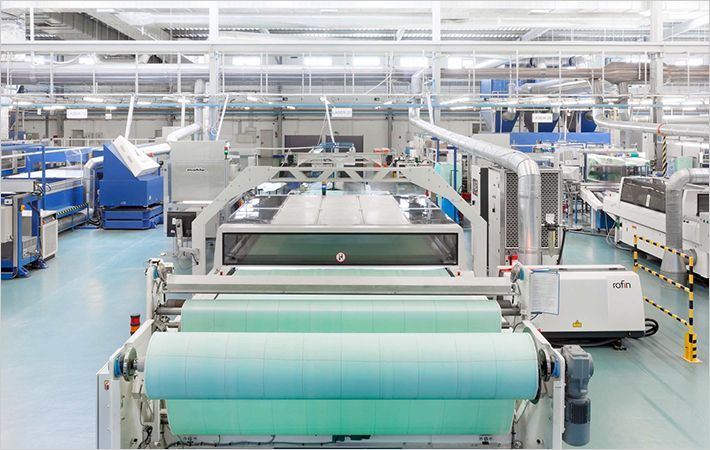ANNA, the All-Nippon Nonwovens Association and EDANA, the International Association serving the Nonwovens and Related Industries, jointly call upon the negotiators of the Japan-EU proposed Free Trade Agreement to consider nonwovens and related products among issue-free product categories for the fast and straightforward elimination of customs tariff between the two trading blocks.
ANNA, the All-Nippon Nonwovens Association and EDANA, the International Association serving the Nonwovens and Related Industries, jointly call upon #
Both economies have a long tradition in the nonwovens industries, with a focus on product innovation and economic investment helping to pioneer the industry. Both the EU and Japan have long enjoyed the status of technology leaders, to the extent that specialised machinery from these countries have been widely exported in the rest of the world.
ANNA, the All-Nippon Nonwovens Association and EDANA, the International Association serving the Nonwovens and Related Industries, jointly call upon #
Additionally, the whole supply chain, from fibres and polymers to finished products, has benefited from Japan-EU nonwovens trade, with more complementarities than real competition between their respective specialties.
ANNA, the All-Nippon Nonwovens Association and EDANA, the International Association serving the Nonwovens and Related Industries, jointly call upon #
Trade in nonwovens between Japan and Europe is of significant value and volume, actually making up a majority of the textile trade in which most nonwovens are included. In 2012, according to EUROSTAT figures the trade in nonwovens (as only partly indicated by figures of HS subheadings 560311 to 560399) between Japan and the EU, amounted to € 59,931,115 and 12,220 tons (EU to Japan) and € 55,129,031 and 2,900 tons (Japan to EU).
ANNA, the All-Nippon Nonwovens Association and EDANA, the International Association serving the Nonwovens and Related Industries, jointly call upon #
A number of nonwovens however escape the “textile” categorization in HS chapter 56 and fall into the paper categories under HS chapter 48. Moreover, trade in industrial, semi-finished (e.g. filtration and automotive nonwovens) and converted consumer (hygiene/personal care) or professional (e.g. personal protective clothing and medical devices) products includes nonwovens which may thus be traded indirectly in substantial quantities.
ANNA, the All-Nippon Nonwovens Association and EDANA, the International Association serving the Nonwovens and Related Industries, jointly call upon #
According to a preliminary consultation of member companies of both the European and Japanese nonwovens associations, there are no important outstanding issues of concern, such as significant technical barriers to trade, but both associations are committed to help solving these, should some appear.
ANNA, the All-Nippon Nonwovens Association and EDANA, the International Association serving the Nonwovens and Related Industries, jointly call upon #
In any case this should not prevent negotiators from both sides to consider that based on industry consensus from both parties, elimination of the tariff duties, which are at exactly the same level in both directions (4.3%) since the end of implementation of the WTO’s Uruguay Round in the 1990’s, can be tabled at the next possible opportunity during the on-going negotiations.
ANNA, the All-Nippon Nonwovens Association and EDANA, the International Association serving the Nonwovens and Related Industries, jointly call upon #

